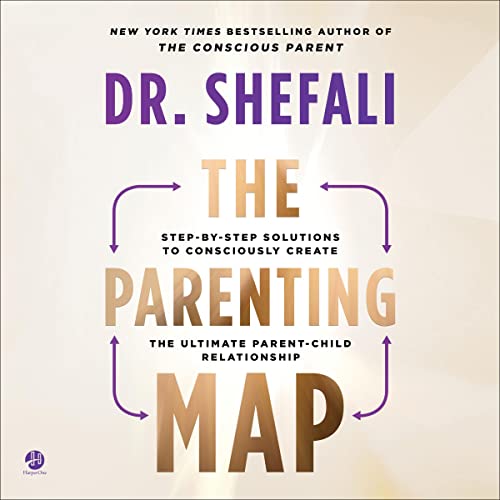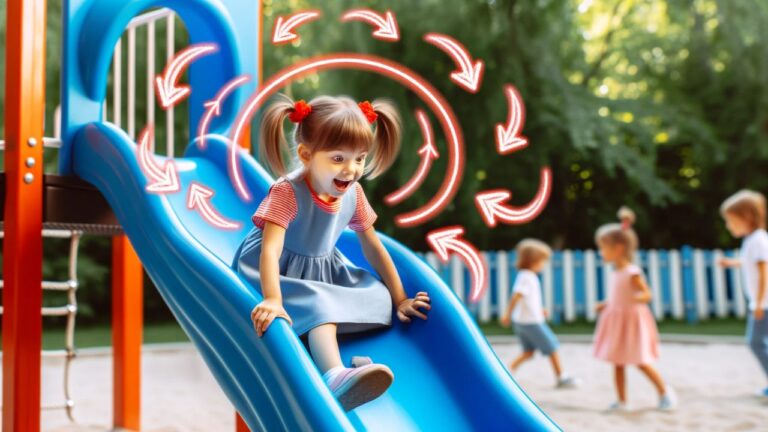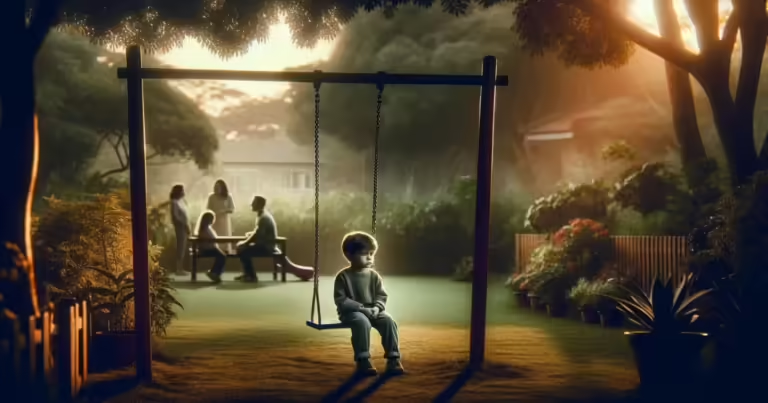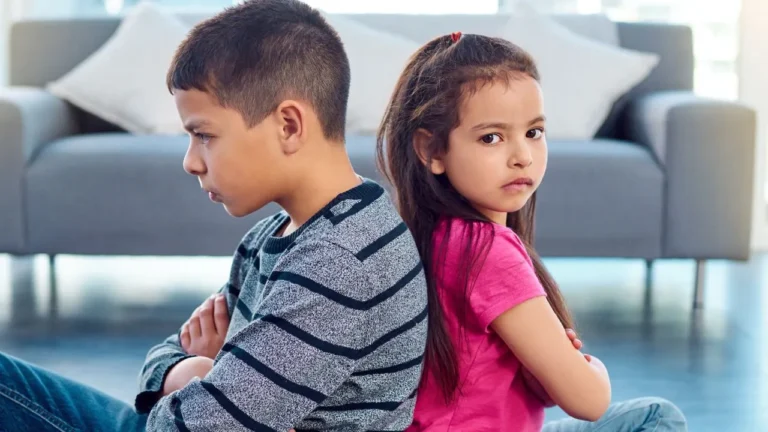What Is Conscious Parenting? A Transformative Future
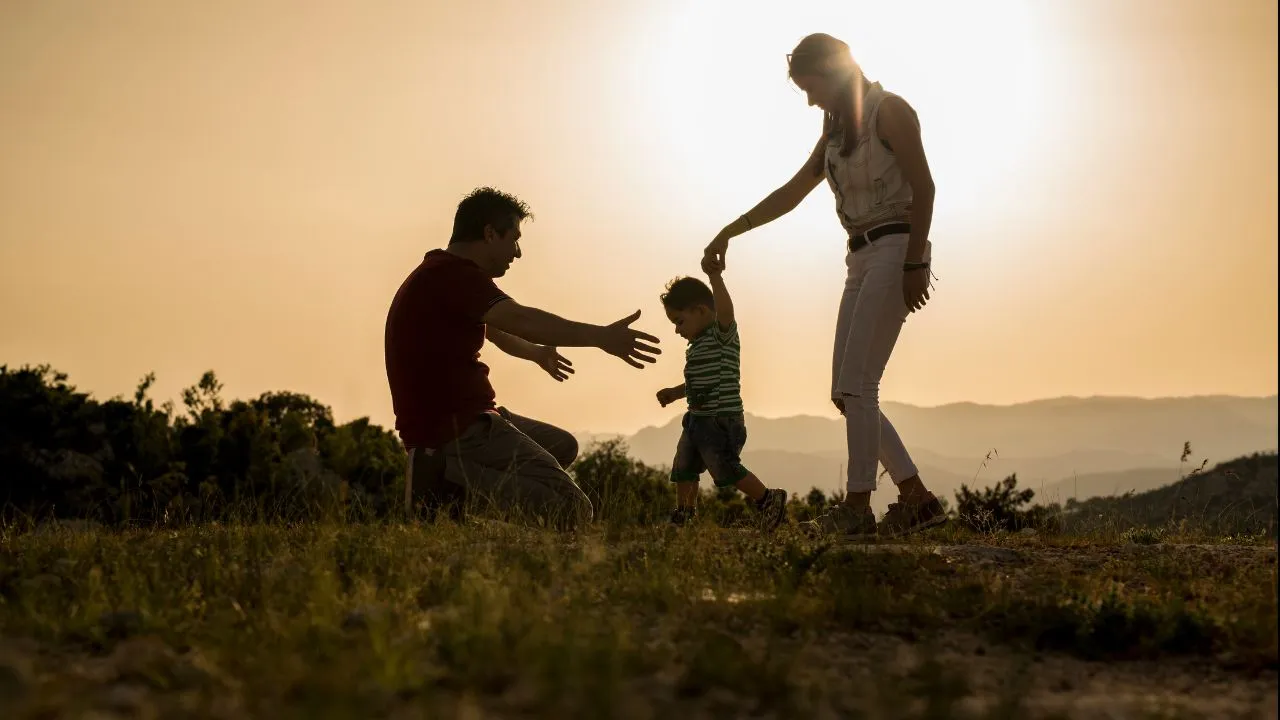
Do you ever find yourself at the end of a long day, utterly drained, only to be met with the emotional and physical demands of family life? I've been there, and if we're honest, the chaos of modern existence often spills over into our homes, touching those we love most; our children.
The trials of work-life balance, the constant hustle, and the digital distractions have turned our homes into a battleground of stress and reactivity. Where is the sanctuary we yearn for? Where is the tranquil space in which both parent and child can breathe freely?
You've probably tried various parenting techniques, from authoritative to indulgent, looking for that magical formula that will make home life more harmonious. But what if I told you that the formula isn't about discipline or rules but lies in a more mindful approach? What if the key to better parenting isn't about “fixing” your child's behavior but involves a profound inner transformation within you?
Yes, I'm talking about conscious parenting; a style of parenting that encourages emotional regulation, self-awareness, and a deep, authentic relationship with your child. I can't help but ponder, what if there's a more enriching way to raise our kids, one that benefits not just them, but us as well? Would you be open to exploring it?
What Conscious Parenting Means
Stepping into the realm of conscious parenting invites us into a transformative journey, not just for our children but for ourselves as well. But what is this enigmatic approach to parenting that I speak of? Conscious parenting diverges from traditional methods—it's not about an iron fist of discipline or the authoritarian approach we might have experienced growing up.
Now, I'm not saying discipline and structure have no place in child-rearing. Far from it. But conscious parenting requires a deep inner work that goes beyond merely reacting to our children's behavior. It involves emotional regulation, mindfulness, and, most crucially, a heightened sense of self-awareness.
Traditional methods often involve a set of rules, “Do this,” “Don't do that,” with the child often at the receiving end of the parent's emotional state. In contrast, conscious parenting considers the emotional well-being of both parent and child. It asks us to dig deep into our emotional makeup and understand how it impacts our parenting choices.
While the mainstream culture might say that parenting is not that complicated, those of us who practice this mindful parenting approach know that becoming a better parent is not an overnight feat. It's one of the hardest things you'll ever do but also the most rewarding.
Why? Because conscious parenting is not about being a ‘perfect parent' but about being acutely aware of your actions and reactions. It's about taking time to understand your child's feelings and needs instead of setting strict rules based on what you think is right. It's not a one-size-fits-all philosophy; it's a dynamic relationship between you and your child, evolving as both of you grow and develop.
Can we agree that the conventional “reward and punishment” style has its limitations? I believe positive reinforcement and emotional connections offer a richer, more sustainable approach to discipline. I've read countless parenting books and consulted with clinical psychologists, and it's clear that the conscious parenting movement is growing for a reason. It works. And not just for your child, but for you as a parent.
Conscious parenting is more than just a parenting style; it's a parenting philosophy that encourages parents to make conscious choices. So, are you ready to do the inner work that conscious parenting takes? Are you prepared to transcend the common pitfalls of negative parenting and become conscious because a conscious person is naturally loving?
Now, as we delve deeper into this topic, we'll explore the principles that form the bedrock of this parenting approach, the skills it instills in our children, and the challenges that come with it. But for now, I leave you with this question: Could this be the key to a more fulfilling, more connected family life?

The Principles of Conscious Parenting
So we've broached the transformative essence of being a conscious parent, but what underpins this profound shift in your role as a caregiver? The architecture of this style of raising children is built on several core tenets. These aren't just abstract ideas; they are practical frameworks that guide every interaction you have with your young ones.
Mindfulness
First and foremost is mindfulness, a concept often misunderstood or, even worse, dismissed as a trendy buzzword. Yet, I assert that it's the cornerstone of being a more effective parent. Mindfulness isn't just about deep breathing exercises or meditation; it's about being fully present in the moments you share with your child. How can you help them grow if you're mentally elsewhere?
Emotional Intelligence
Next in line is emotional intelligence. You may be wondering, what does it have to do with parenting? I'd say, everything. Emotional intelligence involves understanding your emotional landscape and that of your child. It equips you with the ability to navigate complex feelings and situations without falling into the trap of reactivity. This, in turn, fosters a healthier parent-child relationship.
Setting Boundaries
Boundaries are often associated with saying ‘no' or setting strict rules. But in the context of conscious parenting, it's more nuanced than that. Setting boundaries is about establishing mutual respect between you and your child. It's about making clear what behaviors are acceptable and which ones are not, without resorting to the punitive measures that many of us grew up with.
The Inner Work
If you think these principles sound like a lot of internal labor, you're right. This path demands significant self-reflection and personal growth. Many parents shy away from this, believing that parenting is not that complicated. However, those who venture into this territory find that the process is as rewarding for the parent as it is beneficial for the child.
So what does practicing these principles look like in the day-to-day chaos of family life? It involves constant adjustments, ongoing learning, and a good deal of humility. You'll be challenged to dig deep, confront your shortcomings, and embrace a kind of parent you perhaps never envisioned being.
It's not just about discipline or being authoritative. It's about evolving a style of parenting that is in harmony with your deepest values and your child’s unique needs. It's about shifting from unconscious reactions to conscious responses.
In essence, conscious parenting takes the approach of “fixing” from the outside and turns it inward. I encourage you to consider: could these pillars offer a framework for not just raising well-adjusted kids, but also for becoming a more grounded, more loving version of yourself?
“When you parent, it’s crucial you realize you aren’t raising a “mini-me,” but a spirit throbbing with its own signature. For this reason, it’s important to separate who you are from who each of your children is. Children aren’t ours to possess or own in any way. When we know this in the depths of our soul, we tailor our raising of them to their needs, rather than molding them to fit our needs.”
–Shefali Tsabary, The Conscious Parent
How Conscious Parenting Style Can Transform Relationships
You may find yourself asking, “How can adopting these principles truly alter the dynamic I share with my offspring?” Let me illuminate this for you through vivid real-world scenarios.
The Tale of the Tantrum
Imagine you're in a grocery store. Your child spots candy and starts to demand it. When you refuse, the tantrum ensues. The old authoritative approach might tell you to sternly say no, causing more tears and perhaps a public scene. But what if, instead of reacting, you knelt to your child's level and asked them to explain why they wanted the candy so much? You validate their feelings but also establish a boundary. You're not just silencing a tantrum; you're teaching emotional regulation and communication.
A Calmer Morning Routine
Consider the morning hustle—getting the kids ready for school while you're rushing to prepare for your day. You might feel the urge to snap when they dawdle. But have you ever stopped to ask why they're taking so long? By shifting your approach from frustration to curiosity, you not only solve the issue at hand but also teach your child the importance of time management and communication.
Actionable Steps for Everyday Interactions
In my experience as a parenting coach, I've seen a marked transformation in families who adopt these practices. The benefits go beyond just “fixing” your child's behavior. They extend to creating a more harmonious, connected family unit. It's a far cry from the indulgent or authoritarian styles many of us were raised with.
Yes, practicing conscious parenting may seem like a lot of work, and it is. But let me assure you, the rewards are immeasurable. Children nurtured in this environment grow to become emotionally intelligent, empathetic, and self-aware adults. And isn’t that what we all aspire to as caregivers?
So, as the Dalai Lama wrote, “Give the ones you love wings to fly, roots to come back, and reasons to stay.” Could a conscious approach to raising your kids offer them precisely that?
Are you prepared to tackle the complexities that arise when you become truly aware of your role as a parent? Are you ready to help your family grow in a way that is both emotionally enriching and deeply connected?
The Benefits of Conscious Parenting and Drawbacks
As someone deeply invested in human psychology and child development, I can't overlook the complex landscape of parenting. While conscious parenting offers numerous advantages, it also presents its own set of challenges. In the spirit of a comprehensive understanding, let’s delve into both.
The Upsides: Why Choose Conscious Parenting?
The Downsides: What You Should Be Prepared For
You see, conscious parenting isn’t a magical elixir that instantly resolves all familial strife. It's a journey laden with its own set of trials. But I firmly believe that the rewards far outweigh the challenges. The question remains, are you willing to embrace both the beauty and the complexity of this transformative approach?
In the end, it comes down to a fundamental choice: Do you continue the generational patterns that have been handed down to you, or do you take the brave step of forging a new path? What kind of legacy do you wish to leave?

Examples Of Conscious Parenting in Action
So, you've gathered the theories, weighed the pros and cons, and now find yourself eager to take that next step. How do you translate this newfound wisdom into real-world parenting scenarios? Let’s delve into the practical side of this transformative approach.
A Personal Anecdote: The After-School Meltdown
I recall an evening when my child came home from school in a noticeably foul mood. The customary “how was your day?” was met with a sulky “fine.” My gut reaction was to insist on a more detailed answer, but instead, I took a breath and simply sat down beside him.
“Would you like to talk about it?” I offered, showing that I was available but not pressing. Eventually, he opened up. He had been reprimanded by a teacher for something he didn’t do. Rather than offering solutions or marching into the school the next day, I listened. And by doing so, I offered him something far more valuable: emotional validation and a safe space to express himself.
Practical Steps for Implementing Conscious Parenting
The Power of Adaptability
No two children are the same. What works wonders for one might fail utterly with another. Be prepared to tailor your approach, always keeping the core principles in mind.
The Ripple Effect
It's easy to underestimate the impact of these subtle shifts in your parenting style. Yet, the ripple effects are far-reaching. Not only will your children grow into emotionally balanced individuals, but you'll also find a newfound peace in your own life.
So, are you ready to turn theory into practice, transcend old patterns, and forge a new path in the intricate art of raising children? Remember, the journey may be fraught with challenges, but the destination is immeasurably rewarding. It's not just about building a better child; it's about becoming a more whole, more conscious you.
Conclusion: The Journey Towards Conscious Parenting
Here we are, at the crossroads where theory meets practice. We've navigated the labyrinth of modern-day parenting challenges, and now we stand on the brink of something transformative. “The journey towards conscious parenting is not a sprint; it's a marathon of self-awareness, love, and mutual respect.” So, wouldn't you agree that embarking on this journey could be the golden key to a more harmonious home life?
What Conscious Parenting Truly Means
Let's take a moment to circle back to the essence of what conscious parenting signifies. It's not about control, not about setting up a regime of strict rules or “fixing” our children's behavior. This approach goes beyond the authoritative parenting many of us grew up with. It's not about being the kind of parent that society says we should be, but about acknowledging that our children are individuals who can teach us as much as we teach them. This, my friends, is what real, effective parenting means.
The Double-Edged Sword
Let's be candid. There are both benefits and drawbacks to adopting this style of parenting. While the benefits—like a more loving relationship with your child—are palpable, the drawbacks can't be ignored. It can be difficult once we become conscious of our own limitations. Many a time, the parent's ego can be the biggest obstacle to effective communication. The Dalai Lama wrote, “When you talk, you are only repeating what you already know. But if you listen, you may learn something new.”
Action and Reaction
Unconscious parenting often leads to reactive measures—quick fixes that don't address the core issues. However, a conscious approach to raising kids encourages us to ask them to explain their feelings, instead of reacting on impulse. This, in turn, helps in resolving issues as they arise, without escalating them into something more complicated.
The Family Unit Evolves
The aim of conscious parenting goes beyond child development; it's about the evolution of the family unit as a whole. When we give our kids the emotional tools they need, when we become the parents who can guide without dictating, we're not just raising our children. We're elevating ourselves, our relationships, and our entire family structure.
The First Step
So, are you ready to take the first step? To move away from authoritative dictums and towards a practice imbued with mindfulness, emotional intelligence, and mutual respect? The first step often involves unlearning what we think we know about parenting and relearning through the lens of conscious engagement.
Let's be honest, this won't be an easy journey. It will demand from you a level of self-reflection and inner work that many find daunting. Yet, the payoff is immeasurable. Not just for your child, but for you, and for the intricate web of relationships that make up your family.
Are you ready to commit to the marathon, not just for your child's sake but for your growth and the collective soul of your family? The roadmap is laid out in front of you; all that remains is to take that first, crucial step. Will you take it?
Contributor at Trendingkidstuff.com
Sky Uni is a Conscious Parenting Coach with 10 years of experience, and an expert in product reviews. She’s a passionate yoga and meditation enthusiast, loves coastal destinations, and enjoys spending time with her Bengal cats. Sky brings her fun-loving spirit and energy and her Master’s in Psychology to all of her work, helping families make informed decisions and create more harmonious relationships.

